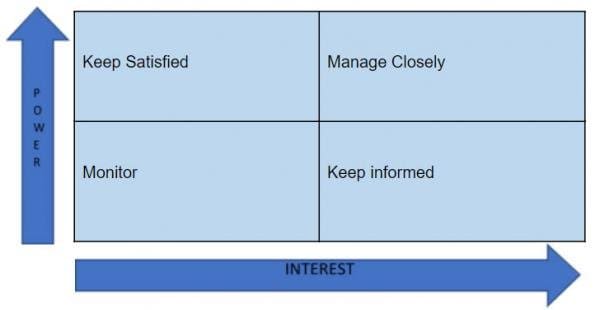When you are empowered, you understand the importance of asking questions to reveal the information needed to ensure the success of your project portfolio, and leaders understand the importance of sharing all the information that project portfolio managers and their teams need to succeed. There are no templates for empowering; rather, you already have all the tools, techniques, and templates you need. It is all about how you apply those tools, and how your leadership receives and perceives that application. Here we discuss what empowerment is, is not and the role of authority and power aligned with the accountability and responsibility.
Article Contents
ToggleWhat is empowerment?
It is important that everyone involved with your project portfolio has the same understanding of what “empowerment” means because it is such a critical element of an organization’s culture. Also, culture, along with agility, data, and talent, are the key strengths an organization needs to digitally transform. What does empowerment mean to you? How can you tell if you are empowered?
A quick review of the various definitions of empowerment reveals nearly all definitions contain the word “authority” or “power”:
- “The giving or delegation of power or authority” (Dictionary.com).
- “Authority or power given to someone to do something. The process of becoming stronger and more confident” (OxfordDictionaries.com).
- “The granting of the power, right, or authority to perform various acts or duties” (Merriam-Webster.com).
- “The management practice of sharing information, rewards, and power with employees so that they can take the initiative and make decisions to solve problems and improve services and performance. Empowerment is based on the idea that giving employees skills, resources, authority, opportunity, motivation, and holding them responsible and accountable for the outcomes of their actions will contribute to their competence and satisfaction” (BusinessDictionary.com).
Authority and power aligned with the accountability and responsibility
What does the role of authority and power aligned with the accountability and responsibility mean? Let’s take a closer look.
Do you have the necessary authority in your project portfolio management role? Consider your job description, as well as your location in the organization chart relative to your project portfolio sponsors, project team, and your manager. If your project team reports to you, and you have a peer relationship to your project sponsor, and you are funding your project portfolio, you probably have the authority and power aligned with the accountability and responsibility of your role.
If you do not have that alignment, welcome to the club. You operate from a position of influence. Influence is the skill required to affect someone or something without power. Influence requires status, contacts, a solid network, charisma, and budget in order to achieve the same result as someone with power and authority. Working from a place of influence is harder than working from a position of authority.
Remember the difference between accountability and responsibility. Responsibility is the only one that can be delegated.
Empowerment: What it is not.

How can you tell if you are empowered? You might not be empowered if:
- “Empower your team” shows up as a task. Based on the definitions above, empowerment is a process, a practice, a concept.
- Managers are doing the work instead of guiding and helping teams. Resist the temptation to do it yourself, even when it feels like the work would be of better quality or completed more quickly.
- Leaders are stepping in to do something when things are not going as planned. Remember how you learned and gained the experience you have. Allow others to gain experience by doing so too.
- Managers overrule a decision they have given to someone else to make. Nothing kills empowerment faster than asking for a decision when you have no intention of acting on the decision that is shared.
- Teams are doing whatever they want. As project portfolio managers, we are leading a team and influencing stakeholders to achieve a strategy that is desired by the organization.
- You have implored and encouraged your team to take more initiative or show more motivation, then asked them to check in with you.
- Governance entities require your team to submit a long-form to obtain the resources you need and must wait for approval.
- Someone is focusing on policing your team’s processes instead of supporting your team.
Empowerment is a strategy. What is your organization’s empowerment strategy? Who is managing the project portfolio that delivers that strategy? Understanding the role of authority and power aligned with the accountability and responsibility goes a long way to developing the right empowerment strategy.
Similar Content:
What is a Stakeholder?
According to the PMI Guide to Business Analysis, “A stakeholder is an individual, group, or organization who may affect, be affected by or perceive itself to be affected by a decision, activity, or outcome of a project, program or portfolio.” Stakeholders can be internal or external to the project and include the project sponsor, project team, customers, and suppliers. If certain stakeholders are not managed effectively during a project, there is a risk that it may be stopped. Stakeholder Engagement is defined as ”the process by which an organization involves people who may be affected by the decisions it makes or can influence the implementation of its decisions.” The following three steps can be implemented during business analysis initiatives on a project to maintain positive stakeholder engagement.
Step 1: Identify stakeholders
Identifying stakeholders is a process of identifying all affected people or organizations throughout the project life cycle and documenting information regarding their interests, independencies, influence, and the potential impact on project success. It involves determining who is impacted by the project, what their interests are, whether the stakeholders are internal or externals and who are the most important ones. It also involves the use of tools such as brainstorming, expert judgment, and documentation review as well as lessons learned from previous, similar projects to identify who are the project stakeholders. The output of the process is a Stakeholder Register which identifies the people, groups, and organizations that have any interest or involvement in the project and includes names, titles, roles, interests, power, requirements, expectations, and type of influence, etc. The involvement of stakeholders on a project may include sponsorship of the project, confirmation of business requirements, approval of project documents, and testing of the deliverables.
Step 2: Analyze stakeholders
The next step is to put together a detailed stakeholder analysis with the team that is involved in the project. Stakeholder analysis is used to identify key stakeholders and to assess interests, positions, alliances, and importance given to the project by the stakeholders. Such knowledge allows business analysts to interact more effectively with stakeholders and to obtain their support. Conducting such an analysis before the project starts, “allows project managers to detect and take measures to avoid misunderstandings and potential opposition to the project” (Bright Hub Project Management). It’s important to identify and examine key factors such as proximity to the project, demographics, interest in the project, needs and concerns, expectations of the project, and any previous project communications. Stakeholder’s interests can be used further, criteria such as whether they are resistant, neutral, and supportive with respect to the initiative. The Power/Interest Grid shown below is a simple tool that helps to categorize project stakeholders based on their increased power and interest in the project and helps to focus on the stakeholders who can make or break the project thereby prioritizing the stakeholders e.g., stakeholders that lie in the Manage Closely quadrant can contribute towards project failure if they are not managed properly during the project.
Step 3: Manage stakeholder expectations
It is also important to plan for stakeholder engagement upfront by articulating management strategies to engage them. Different stakeholders have different opinions as to how the project will benefit them; hence it is important to understand and document those expectations. It is therefore important to meet the stakeholders regularly and update them on the progress of the project. Effective communication ensures that stakeholders receive information that is relevant to their needs and builds positive attitudes towards the project. Investment in careful planning before engaging stakeholders will, therefore, bring significant benefits in the future.
The communications management plan can be used to define the communication requirements for the project, how information will be distributed, the frequency of distribution, the level of details and format, and who is responsible for communicating with stakeholders. Communicating with the stakeholders early and often and including reporting on progress will ensure that they fully understand the initiatives and the benefits; hence they can be more actively supportive in the future.
Other important documents such as the Issue Log can also be used to record and manage and communicate on all the issues related to the project.


